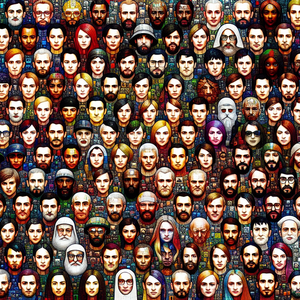The Future of Renting: AI Agents and Smart Cities

AI rental price optimizers are sophisticated algorithms designed to analyze vast amounts of data, including local market trends, tenant demographics, and economic indicators. By leveraging machine learning, these systems can identify patterns and make predictions about rental prices with remarkable accuracy. In smart cities, where data is abundant, AI can tap into real-time information from various sources, such as traffic patterns, local amenities, and even weather conditions, to adjust rental prices dynamically. For instance, if a nearby public transportation line is upgraded, an AI system could immediately recognize the increased desirability of surrounding rental properties and suggest a price adjustment to reflect this change. This responsiveness not only benefits landlords by maximizing rental income but also helps tenants find fair prices based on current market conditions. Companies in the real estate sector, such as Zillow or Redfin, could leverage AI agents to dynamically set rental prices, ensuring they remain competitive while reflecting actual market conditions.
Integration with IoT Devices
The advent of smart cities is characterized by the interconnectedness of devices and systems. IoT devices, such as smart meters, environmental sensors, and traffic monitors, collect data that can be invaluable for rental price optimization. For example, energy consumption data from smart meters can inform landlords about the sustainability of their properties, enabling them to market these features to eco-conscious tenants and adjust rental prices accordingly. Moreover, IoT devices can enhance tenant experiences, leading to improved retention rates. For instance, smart home technologies can provide tenants with convenience and comfort, making a property more appealing. An AI rental price optimizer can analyze the demand for these smart features and suggest price adjustments that reflect their value to potential renters. Companies like Airbnb are already exploring smart home technology, and integrating AI to optimize rental pricing could further enhance their offerings and attract more users.
Influencing Urban Planning
AI-driven rental price optimization can also play a crucial role in urban planning. By analyzing rental trends and tenant preferences, city planners can make informed decisions about infrastructure development and zoning regulations. For example, if AI data indicates a growing demand for rental units in a particular area, planners can prioritize the development of housing in that location, addressing supply shortages and preventing price surges. Additionally, AI can help cities identify underutilized spaces that could be transformed into rental opportunities. By optimizing the use of existing resources, cities can promote sustainable growth and ensure that rental markets remain accessible to a diverse population. Companies involved in urban planning, such as AECOM or Jacobs Engineering, could greatly benefit from integrating AI insights into their projects, leading to more efficient and equitable urban environments.
Sustainability Initiatives
The integration of AI rental price optimizers into smart cities aligns with sustainability initiatives aimed at reducing environmental impact. By analyzing data related to energy consumption, transportation patterns, and resource allocation, AI can help landlords and tenants make more environmentally conscious decisions. For instance, properties that utilize renewable energy sources or have green certifications could be priced more competitively, encouraging landlords to invest in sustainable practices. Furthermore, AI can assist in tracking the environmental impact of rental properties, providing insights that can lead to policy changes and incentives for sustainable development. As cities strive to become more eco-friendly, AI-driven rental pricing can play a pivotal role in shaping a greener future. Real estate investment firms that prioritize sustainability, like Prologis or Hines, could leverage these insights to align their portfolios with the growing demand for eco-friendly living spaces.
The future of renting is being reshaped by the convergence of AI technology and smart city initiatives. As AI rental price optimizers become more sophisticated and integrated with IoT devices, they will not only enhance the efficiency of the rental market but also contribute to urban planning and sustainability efforts. The potential for these systems to adapt to real-time data will empower landlords and tenants alike, creating a more dynamic and responsive rental landscape. As we move forward, embracing this technology will be crucial for fostering a rental market that is equitable, sustainable, and aligned with the needs of modern urban living. Companies that recognize the value of AI-driven solutions in their rental pricing strategies will likely lead the charge toward a more innovative and efficient future in the real estate sector.
AI Data Scientist
Zillow, Redfin, real estate technology startups
Core Responsibilities
Develop and implement machine learning models to analyze rental market trends and pricing strategies.
Collaborate with cross-functional teams to integrate AI solutions into existing rental platforms.
Conduct data preprocessing and feature engineering to enhance model accuracy.
Required Skills
Proficiency in programming languages such as Python or R, with experience in libraries like TensorFlow or PyTorch.
Strong background in statistics and data analysis, particularly in real estate or urban planning contexts.
Familiarity with big data technologies (e.g., Hadoop, Spark) and cloud services (e.g., AWS, Azure).
Smart City Project Manager
AECOM, Jacobs Engineering, municipal government agencies
Core Responsibilities
Oversee the planning and execution of smart city initiatives, focusing on integrating AI and IoT technologies in urban environments.
Liaise with city planners, technology vendors, and community stakeholders to ensure project alignment with urban development goals.
Monitor project progress and assess the impact of AI-driven solutions on city infrastructure and services.
Required Skills
Proven experience in project management, preferably within urban planning or technology sectors.
Understanding of IoT applications and AI systems in a city context.
Strong communication and stakeholder engagement skills.
Real Estate Sustainability Consultant
Prologis, Hines, environmental consulting firms
Core Responsibilities
Advise property owners and developers on integrating sustainable practices into real estate investments.
Analyze energy consumption and environmental impact data to recommend improvements and adjustments in rental pricing.
Develop sustainability reports and certifications for properties, aligning with green building standards.
Required Skills
Expertise in sustainability practices and certifications (e.g., LEED, BREEAM).
Strong analytical skills with experience in data analysis related to energy efficiency and environmental impact.
Knowledge of real estate market dynamics and the implications of sustainability on property valuation.
Urban Data Analyst
Urban planning agencies, research institutions, McKinsey & Company
Core Responsibilities
Collect, analyze, and interpret urban data to inform city planning and rental market strategies.
Use GIS tools and statistical software to visualize data trends related to housing demand and pricing.
Collaborate with urban planners to leverage data insights for infrastructure development and zoning adjustments.
Required Skills
Proficiency in data visualization tools (e.g., Tableau, QGIS) and statistical analysis software (e.g., SPSS, R).
Strong understanding of urban economics and real estate markets.
Ability to communicate complex data findings to non-technical stakeholders.
IoT Solutions Architect
Cisco, Siemens, IoT startups
Core Responsibilities
Design and implement IoT systems that enhance smart city initiatives, focusing on data collection for rental price optimization.
Collaborate with software developers and data scientists to ensure seamless integration of IoT devices with AI algorithms.
Evaluate and select IoT technologies that align with project goals and sustainability initiatives.
Required Skills
Experience with IoT frameworks, protocols (e.g., MQTT, CoAP), and device management.
Strong background in software architecture and system design, particularly for data-driven applications.
Knowledge of cybersecurity best practices for IoT deployments.


